Conscientious Objection in Healthcare
Toni Saad, a final year student at Cardiff University, was the recipient of a 2018 IME Elective Bursary. Read his report below
April 2018, Anscombe Bioethics Centre, Oxford, UK
For two weeks of my medical elective, after completing six weeks in Neurology, I was the Anscombe Bioethics Centre’s Visiting Research Fellow, working on the current controversy of conscientious objection in healthcare. My time consisted of preparing a paper for a half-day symposium on the subject and planning a joint seminar between the Uehiro Centre and the Anscombe Centre.
The seminar took place at the Oxford Martin School and consisted of a discussion of the Consensus Statement on Conscientious Objection (published on the University of Oxford’s Practical Ethics blog) and Prof. David Oderberg’s Declaration on Conscientious Objection. The merits of these were debated and their implications explored. The overriding goal was for parties to gain a better understanding of the core disagreement(s) about conscientious objection. One of the attendees drafted a dozen points upon which disagreement was agreed, and these were summarised at the end. After the event, the discussion was continued by email. We are hoping to draft some of the work which has come out of the seminar for submission for publication. The value of this exercise was to locate precisely the points of disagreement which underly the respective positions on conscientious objection in healthcare, as well as points upon which parties agreed.
The second major event was the half-day symposium on conscientious objection in law and medicine at which I presented a paper. Dr Mary Neal spoke about some of the legal aspects of conscientious objection in healthcare, while my talk considered the ethical and medical aspects. I argued that some common arguments raised against conscientious objection do no withstand logical scrutiny: arguments about the requirements of autonomy fail to recognise the real difference between positive and negative autonomy; arguments about the duty of a healthcare professionals typically do not consider the goals of medicine or the nature of clinical judgement; and arguments about the inappropottaeness of values in clinical decision-making ignore the ineluctably moral character of healthcare and the inevitability of making clinical decision on the basis of conscience. The second part of the paper explored the question of why hostility to conscientious objection has come about in recent times. I argued that the hostility is not towards conscience per se, although that is often how arguments are presented, but it is to do with concerns over controversial issues relating to sex and reproduction. If these issues were different, I speculated that there would not be such a hostile literature towards conscientious objection. After delivering the paper, I heard Dr Andrew Papanikitas’ response to it, and took questions from the attendees. This last part was most challenging, as I was forced to answer questions which I had not previously considered. However, the event was undoubtedly useful for my own learning.
My time in Oxford highlighted the need to continually refine my thinking about conscientious objection in healthcare. Interacting face-to-face with those who take a view opposed to my own showed me that I had misunderstood some of the concerns of those opposed to conscientious objection and failed to answer these adequately. Moreover, I realised that previous work I had done in defence of conscientious objection needed revision in light of very helpful conversations with Prof. David Albert Jones. I had previously argued in a paper in Clinical Ethics that conscientious objection should only be permitted with respect to procedures which do not conform to the goal of medicine defined as healing. In this category I included abortion, contraception, euthanasia and ritual circumcision etc. What I realised is, if medicine really is a moral endeavour which requires conscience to make any clinical decision, then it does not make sense to shut down from the outset conscientious objection to things which are not part of a pre-agreed list of controversial procedures. It is too narrow to talk about conscientious objection only in terms of ends, and not also in terms of means. These two can be distinguished, and doing so shows that, even when there is no conflict about the morality of ends, there can be conflict over means. Hence, thought a cardiologist may not be opposed to treating heart disease with a given drug in principle, he may refuse to do so in practice if he deems it would be ineffective or disproportionally harmful. This is a decision of conscience as much as typical examples, though it is about means rather than ends. This is an area which remains uncharted in the debate over conscientious objection. I now believe the discussion needs to move beyond its focus on lists of controversial procedures and view healthcare holistically as a moral endeavour: conscience is not only for the dilemma and controversy, but for every act where one aims to do good.
I am very grateful to the IME for its generous grant for this medical elective, and would like to thank them for making it possible. I would also like to thank Prof. David Jones of the Anscombe Bioethics Centre for the honour of making me the centre’s Visiting Research Fellow and guiding my work in preparation for my elective. I look forward to studying further this surprisingly complex subject.
Toni Saad holds an MA in medical ethics and is the book reviews editor for The New Bioethics.
